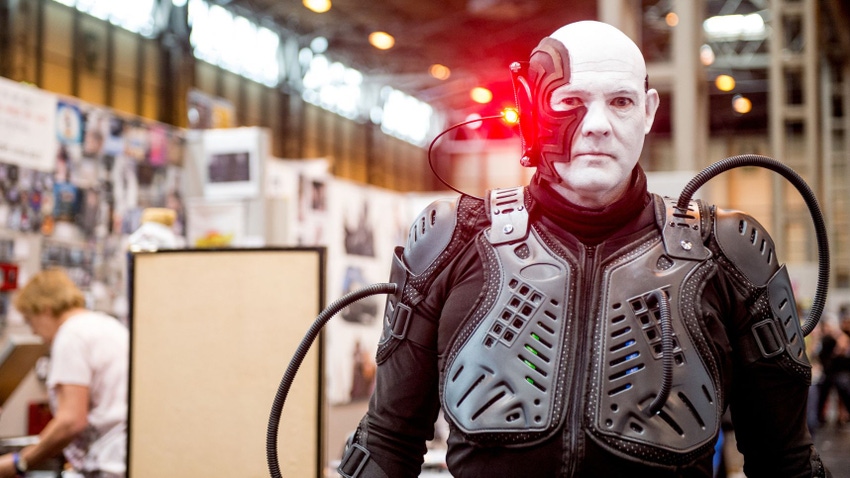Future AI Could Share Knowledge Like the Borg in ‘Star Trek’
AI researchers envision future systems sharing knowledge via "Collective AI" network

AI experts from leading universities believe future AI systems will work together and share information via a network, similar to the Borg in “Star Trek.”
Researchers from MIT, Yale and Loughborough University published a paper in Nature where they described ‘Collective AI’ – a concept where a group of AI agents are capable of sharing data through a linked hive-mind.
The research was funded by the Defense Advanced Research Projects Agency.
The Borg in “Star Trek” was a race of cybernetic organisms linked via a hive mind called the collective. This collective consciousness allowed Borg drones to share thoughts and routinely adapt to situations.
The Borg’s information-sharing abilities could step out of science fiction and become science fact, according to the researchers. In their paper, they wrote that this idea of sharing information would allow several AI units to learn new knowledge and skills from one another via a network.
Current systems like ChatGPT are limited by their knowledge. While an AI system’s knowledge can be extended through internet access or via techniques like Retrieval-Augmented Generation (RAG), models require repeated training to learn new information over time, which is energy-intensive.
A concept like Collective AI could allow future AI systems to continually learn new information without the need for retraining.
“Instant knowledge sharing across a collective network of AI units capable of continuously learning and adapting to new data will enable rapid responses to novel situations, challenges or threats,” said Dr. Andrea Soltoggio from Loughborough University.
“For example, in a cybersecurity setting if one AI unit identifies a threat, it can quickly share knowledge and prompt a collective response – much like how the human immune system protects the body from outside invaders.”
The Borg were antagonists through the “Star Trek” franchise and the potential for collective AI to be used for nefarious purposes was referenced by the researchers. They wrote that collective AI could allow for interconnected AI systems to share “potentially unethical or illicit knowledge.”
The authors said AI units of any future Collective AI system should hold their independence from the collective, focusing on their own objectives.
Agent-based AI systems working in tandem are a growing area of AI research.
Stanford and Google researchers developed a simulated world they called Smallville with 25 AI agents interacting and working autonomously. MIT had the ”Society of Minds” approach where AI agents “debated” one another to create a solution to a user query.
About the Author(s)
You May Also Like


.jpg?width=700&auto=webp&quality=80&disable=upscale)
.jpg?width=700&auto=webp&quality=80&disable=upscale)
.jpg?width=700&auto=webp&quality=80&disable=upscale)
.jpg?width=300&auto=webp&quality=80&disable=upscale)
.jpg?width=300&auto=webp&quality=80&disable=upscale)
.jpg?width=300&auto=webp&quality=80&disable=upscale)
.jpg?width=300&auto=webp&quality=80&disable=upscale)
.jpg?width=300&auto=webp&quality=80&disable=upscale)